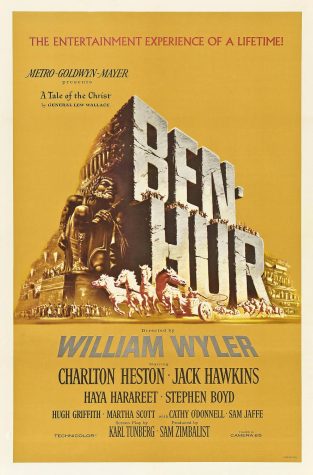Films: Are they getting longer? Is that good for business?
What could be the potential pitfalls if films are getting longer?
May 11, 2022
It would be hard to say that the times are not changing with every passing minute. And one place where the times are changing is the film industry.
Thinking back to ten years ago, films, and how we experienced them as a culture, are much different than they are now. Ten years ago, shooting on digital photography was on the come-up, 3-D films were the big new thing and movies had a theatrical window of 90 days. But as another decade has flashed before our eyes, the industry experienced radical change.
Another trend that has been observed as of recent is their length. Movies being long is not something new. Back in the day, films such as Ben-Hur and Gone With the Wind not only were over three and a half hours long but were the most important ones of the first half of the 2 0th century. In the last decade, films like The Wolf of Wall Street, Marvel Studios’ Avengers: Endgame, and The Irishman have thrived even with their longer runtimes.
0th century. In the last decade, films like The Wolf of Wall Street, Marvel Studios’ Avengers: Endgame, and The Irishman have thrived even with their longer runtimes.
Looking through theatrically released films from January to December of 2021, there were twenty-three that had a runtime over one-hundred and thirty minutes (and that is not including films that went straight-to-streaming!). Add on twenty minutes of previews, and people might be at the theater for about or over three hours.
One downside to a film that is about or over two and a half hours long, industry-wise, is the number of showtimes it will get when being shown in theaters might be lower than a shorter film. While the number of auditoriums the theater might have and the demand for the film should also be taken into consideration, fewer showtimes for a film can mean diminished returns.
A recent example of this issue was last November when Marvel Studios’ Eternals was released. The film opened to a respectable $71.3 million dollars. A significantly better opening than most films since March 2020, but lower than the month prior’s superhero film, Venom: Let There Be Carnage, which opened to a higher $90 million dollars. Both were much-anticipated event films and benefitted from the popularity of the superhero genre. Even their critical consensus was similar as both films received mixed reviews.
So why did one make more than the other? The shorter runtime. Venom: Let There Be Carnage ran at a brisk one hour and thirty-seven minutes while Marvel Studios’ Eternals ran at two hours and thirty-six minutes. Even Deadline states that a factor to the modest opening for Eternals was the longer runtime.
Whether a film should be long or not depends on the story that is being told. It is much more about pace than it is whether the runtime is too long. That is why most comedies are under two hours. They try to get the most laughs in a respectable amount of time without ever going too long. A fantasy epic is commonly expected to have a longer runtime than a romantic comedy. That is not to say a romantic comedy can not be over two hours but if the film’s characters and the story is engaging enough, you would not be able to tell. That is why when some people watch, for example, a three-hour film that is engaging they will say it felt more like two hours than three.
My pal, Jake Viele, shared his thoughts on whether movies are too long nowadays: “Some films try to accomplish too much. Personally, I believe that extensive runtimes are unnecessary with simpler films like superhero movies, and often I think that I have seen enough within 2 hours.”
So, are films getting longer? There is a case to be made that more and more mainstream films as of late are longer. While that’s not something to fear, if there is anything that might do more harm than good is if stories are unnecessarily extended for the sake of it. But in the end, if the film has you invested, the runtime should not be a worry.





































